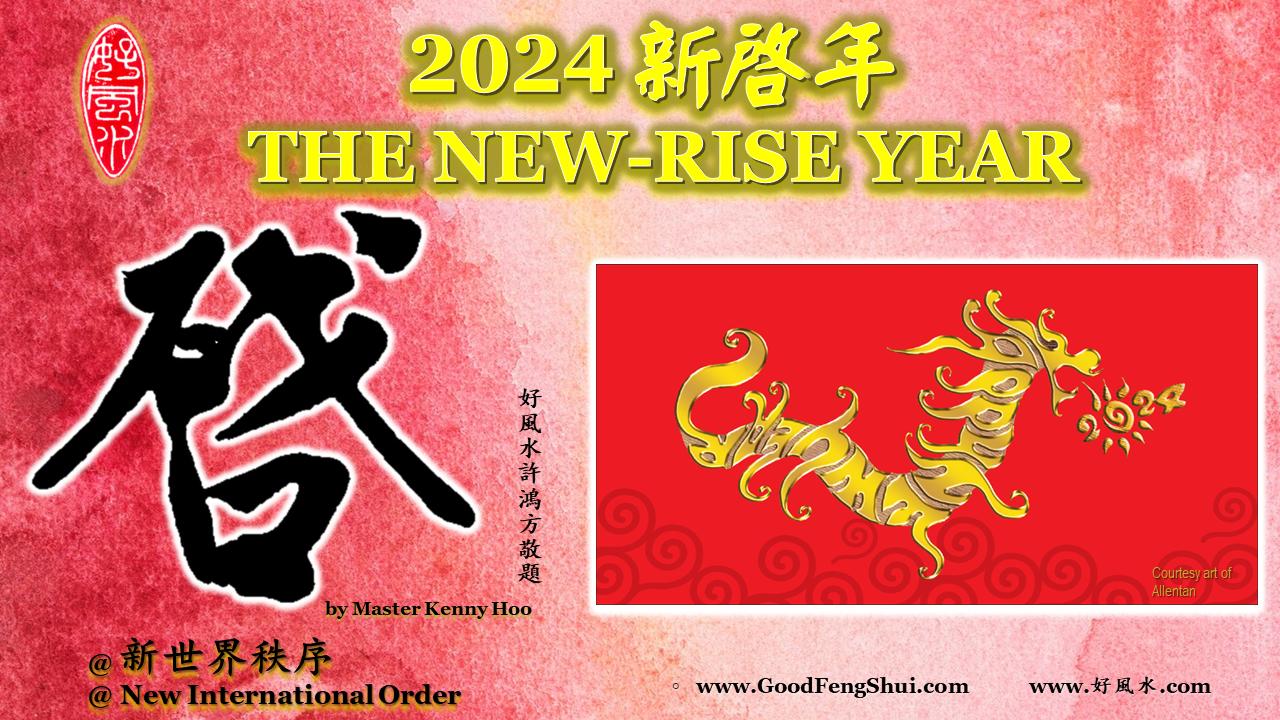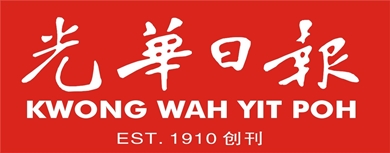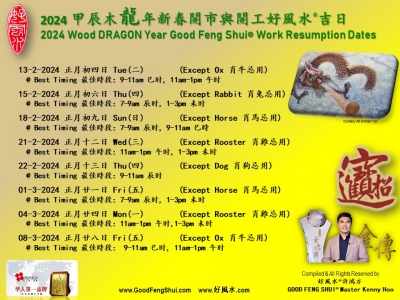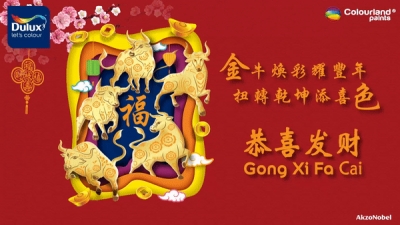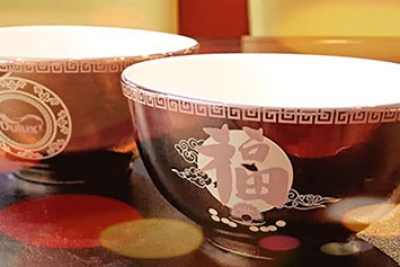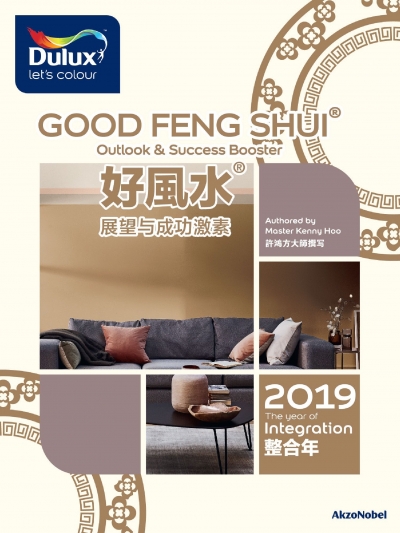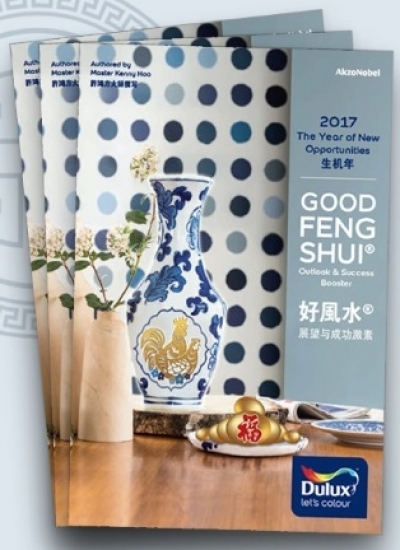Du Mu's (杜牧) often-recited poem In the Rainy Season of Spring (清明) from the Tang Dynasty goes, "It is Qing Ming season, and the rain is drizzling endlessly. The road-weary traveler is longing for a good rest. Excuse me, is there an inn around?" The shepherd boy pointed towards Xinghua Village.", and it keeps coming to the mind at this time.
Yes. The Qing Ming festival just around the corner (April 5th this year on the Gregorian Calendar). Be it Confucious' "filial piety is the root of all virtues" or a practice of Feng Shui, the Qing Ming festival is an extremely important day.
It is the day on which the Chinese visit and pray at the graves of their ancestors. It is a once-a-year occasion, which, besides the Chinese New Year, brings family members an opportunity for a family get-together.
On Qing Ming day, descendants would gather at the graves of their ancestors and clean the tombs. If the paint on the tomestones have been worn off, it can be repainted. If any part of the tomb is damaged, it could have adverse effects on the descendants. Because of this, everyone is highly concerned and works together to mend the tombs with cement. If any damage to the tomb is too serious, any cement-mending on the tomb must done on another specially-selected day.
After cleaning up their ancestor's grave, the descendants would offer the foods and other goodies that they had prepared earlier in the morning. After the lighting up of incense and joss sticks, everyone in the family would get down on both their knees and pray to their ancestors to bless them for good health, safety, for smoothness in their careers, and for better fame and fortunes.
Once the burning of the golden and silver notes has completed, the descendents would, in much the style of an outdoor picnic, enjoy and share a small feast with the food they brought. Amidst plenty of conversation amongst family members, and without realizing it, this greatly enhances the interactivity between them, bringing much cheerfulness and harmony.
From olden days until now, the tradition of tomb-sweeping has its fair share of taboos. For example, many families do not allow their already-married daughter to return home on Qing Ming day to pray to her ancestors, out of worry that she would dilute or diminish the good fortunes of her parents and siblings. And these families would be especially concerned that she would end up sharing the family's wealth luck with the husband's family!
Actually, this is not true at all!
A married daughter bringing her husband and children along during the Qing Ming festival to pray at her ancestor's grave, would not diminish the wealth luck of her side of the family. After all, a married daughter has the blood of her own family running in her, and praying to her own ancestor's grave on Qing Ming day, is absolutely logical. This would also be an embodiment of filial piety, a good example shown to their children, who will follow their lead in respecting their elders and to become human beings worthy of respect. Additionally, to be able to meet up with one's cousins and uncles on this day and to have more interaction with them, the bond between relatives would grow stronger. If one should be so unfortunate as to meet with difficult times, then it would be possible to lend a helping hand to one another.
I have seen some graves which would gather water whenever it rains. Many people do not pay any notice to this, and perhaps they would just clean the muddy waters when they see it each year, and leave it until the following year.
Actually, if an ancestor's grave is gathering water over the long term, this will be unfavourable to the descendants, especially with regards to health and wealth. As such, during Qing Ming, one should also use the opportunity to take preventive measures and make sure no water would be gathered or pooled, such as checking for blocked water outlets, and ensuring that mud from the back of the grave would not get washed into the front section of the grave. There are people who tend to place emphasis on the graves of their male ancestors, and neglect the graves of their female ancestors. This appears to stem from the olden thoughts where it was thought that the grave of female ancestors (e.g. mothers, grandmothers, great-grandmothers) would not have any effect on their descendants. Actually this is a misconception. From a Feng Shui viewpoint, be it the grave of male or female ancestors, the effect on their descendants is of the same degree. And because of this, everyone should not just emphasize on the graves of male ancestors while neglecting the graves of female ancestors.
Some people, from hearsay, are led to think that the water outlet location is "unimportant", being only used for dispersing of the water. On the contrary, the water outlet is of the utmost importance. If this is done incorrectly, it can lead to a "silent killer"-type of adverse effect. Because of this, some masters who are not well-versed with the highest skills of Yin Feng Shui, would rather avoid having to be the one to determine the water outlet location and direction, so as not to endanger others.
An experienced Feng Shui master, in the course of erecting a tomestone, must be able to determine a well-balanced direction of the tombstone, in order that each descendant can have equal beneficience of the prosperity. If the tombstone or the water outlet are not done using the proper direction or location, this can have an imbalanced effect on the descendants, for example some descendants may have unusually good fortunes, with business getting smoother and better, while other descendants may experience hindered progress in their ventures.
Some people mistakenly believe that the individual's contribution towards the costs of renovating their ancestors' grave are directly proportionate towards the future benefits or blessings that they will receive as a result. Actually, this is yet another grave misconception. I have seen previous cases of tomb renovations whereby some better-to-do descendants, in all kindness, were willing to bear a larger portion of the expenses (since they were doing well and wanted to help bear some of the expense on behalf of their less fortunate relatives). But, alas, they were misunderstood as having ulterior motives or trying to gain more benefits instead.
In truth, an experienced Feng Shui master would be able to help such a family with their ancestor's tomb, by ensuring the erecting of the tombstone and the determination of the water outlet location are correctly done. And the effect would be that the family's descendents would, to an equal degree, and regardless of whether their fees were high or low, would receive their ancestor's blessing and protection.





